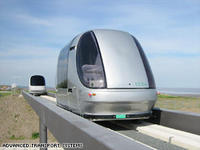| Tuesday, October 14, 2008 |
| Money and the Crisis of Civilization |
 Brilliant article by Charles Eisenstein. Maybe nothing I didn't already know, but plenty that strangely has remained secret for most people. What money really is, where it is coming from, and why things aren't going well for "the economy". One should learn it in school, it should be explained on billboards. There should at least be programs about it on TV. But no, I've never seen any program on TV that even hinted at it. Strange, as it is so shockingly simple. Brilliant article by Charles Eisenstein. Maybe nothing I didn't already know, but plenty that strangely has remained secret for most people. What money really is, where it is coming from, and why things aren't going well for "the economy". One should learn it in school, it should be explained on billboards. There should at least be programs about it on TV. But no, I've never seen any program on TV that even hinted at it. Strange, as it is so shockingly simple. There is a much deeper crisis at work as well, a crisis in the creation of goods and services that underlies money to begin with, and it is this crisis that gave birth to the real estate bubble everyone blames for the current situation. To understand it, let's get clear on what constitutes a "good" or a "service." In economics, these terms refer to something that is exchanged for money. If I babysit your children for free, economists don't count it as a service. It cannot be used to pay a financial debt: I cannot go to the supermarket and say, "I watched my neighbor's kids this morning, so please give me food." But if I open a day care center and charge you money, I have created a "service." GDP rises and, according to economists, society has become wealthier.It is first of all a shockingly well-kept secret that money is created when a bank lends it out, and in no other way. It is very poorly understood that when money is created, more money than what was created is needed to pay it back (the interest), which is mathematically impossible, except for if the pyramid scheme can be kept going indefinitely. And there's obviously not widespread understanding of the systemic implications of this whole thing. The system requires that we keep inventing more and more things that we can keep from other people unless they pay us. It is all a big scam, but you're hard pressed to find anybody who'd admit it. [ Culture | 2008-10-14 19:56 | 15 comments | PermaLink ] More > |
| Where are the podcars? |
 CNN: City hopes to shuttle people in futuristic 'podcars' CNN: City hopes to shuttle people in futuristic 'podcars' Unlike mass transit, podcars carry two to 10 passengers, giving travelers the freedom and privacy of their own car while reducing the use of fossil fuels, reducing traffic congestion and freeing up space now monopolized by parking.Yeah, sounds great. But "not entirely new" is a bit of an understatement. I feel cheated. Where's my future? When I was a kid, in the 60s, my mother subscribed to a popular science magazine called "Vor Viden" (Danish for "Our Knowledge"). Which every month was chock-full of exiting technological marvels that were just around the corner. Like, exactly this pod car scenario. According to that magazine, there had already been test tracks constructed in Germany and other places, and there were photos, which looked very much like these photos. It all sounded very promising, like it would be coming to my neighborhood in a few years. But we're talking about the mid 60s. 40 years ago. It obviously didn't happen so far, and maybe you can understand if I'm a bit skeptical when I read almost the exact same article four decades later, and I'm supposed to believe it. I'd like to believe. But there were also functioning flying cars in the 1960s. And amphibian cars. And we went to the moon in the 1960s. And to the bottom of the Mariana Trench. I'd have expected that we would have gotten a bit further along those lines since then, but it hasn't been much. But we have color TV. Oh, and the internet and mobile phones. Some things are actually better than predicted in the popular science magazines of the 60s. But it is a little silly and unexpected that we're still driving cars with motors that run on exploding fossils. And that we sit and push pedals and turn steering wheels. Seems a bit like the Flintstones, which incidentally was one of my favorite TV program in the 60s. I had just hoped for the Jetsons. [ Science | 2008-10-14 20:33 | 6 comments | PermaLink ] More > |